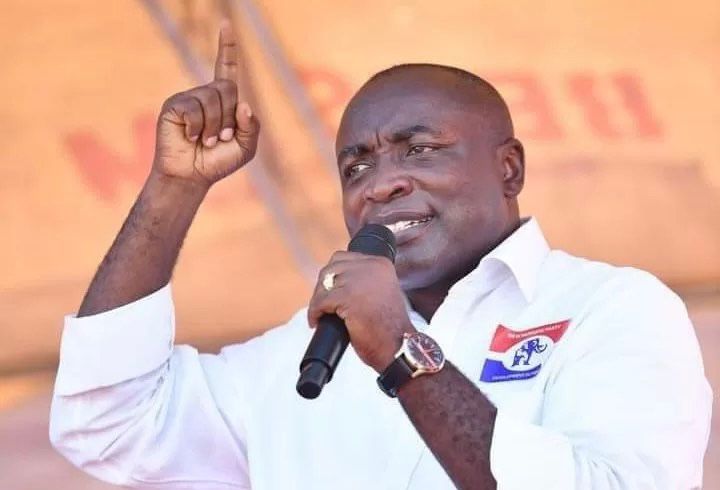Kwabena Agyei Agyapong, a prominent figure within the New Patriotic Party (NPP) and a hopeful contender for its flagbearer position, has emphasized the critical importance of preserving Ghana’s democratic system, despite its inherent imperfections. He draws upon his experience as a seasoned politician and engineer, highlighting the arduous struggles of past generations who fought tirelessly to establish the current democratic framework. These efforts followed an extended period of political instability marked by military rule, culminating in the pivotal transition to constitutional governance in 1992. Agyapong’s call for democratic preservation stems from a deep appreciation for the hard-won freedoms enjoyed by Ghanaians today and a recognition of the sacrifices made to achieve them.
In a recent interview, Agyapong reflected on his personal journey, having witnessed Ghana’s political evolution from the military era through civilian rule to the present technological age. He positions himself as a vital link between these different epochs, emphasizing the responsibility of those who lived through these transformative periods to serve as a bridge for future generations. He recounts the significant events leading up to and following the 1992 transition, including the handover of power in 2001, and contrasts these with the advancements enjoyed by the nation today, achievements that would have seemed unimaginable to earlier generations. This historical perspective underscores the value of the democratic system and the need to actively protect it.
Agyapong further emphasizes that the core principles underlying the NPP’s political tradition and Ghana’s broader democracy were forged during challenging times, highlighting their resilience and the need to appreciate their significance. He contends that the freedoms enjoyed in a democratic society should not be taken for granted, urging citizens to recognize the complexity and difficulty of the journey towards democratic governance. This awareness, he argues, is crucial for safeguarding the democratic ideals that underpin Ghana’s political landscape.
Acknowledging the shortcomings of Ghana’s democracy, Agyapong concedes that the anticipated economic benefits haven’t fully materialized. However, he remains steadfast in his belief that democracy remains the most viable system to build upon. He asserts that the imperfections within the system should motivate continuous improvement rather than abandonment, emphasizing the importance of strengthening institutions and promoting civic engagement. This perspective underscores the notion of democracy as an ongoing project requiring continuous refinement and adaptation.
Agyapong’s call to action extends beyond mere preservation to actively strengthening Ghana’s democratic institutions. He encourages a shift away from partisan politics, urging both political leaders and ordinary citizens to prioritize the collective good. This transcends party lines, emphasizing the shared responsibility of all Ghanaians to contribute to the ongoing development and consolidation of the nation’s democratic foundations. This call for unity and collaborative engagement emphasizes the crucial role that every citizen plays in shaping the future of Ghanaian democracy.
In summary, Kwabena Agyei Agyapong’s message centers on the vital importance of preserving and strengthening Ghana’s democracy. Drawing from his personal experiences and historical context, he emphasizes the hard-won nature of democratic freedoms, advocating for their continued protection and enhancement. He acknowledges the existing shortcomings while maintaining a strong belief in democracy as the best foundation for Ghana’s future. His call to action extends to all citizens, urging them to transcend partisan divides and actively participate in the ongoing project of building a stronger, more resilient democratic system. This message resonates with the core values of democratic governance and emphasizes the shared responsibility in safeguarding its future for generations to come.


